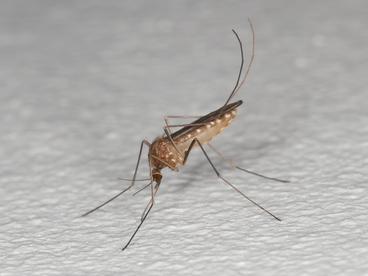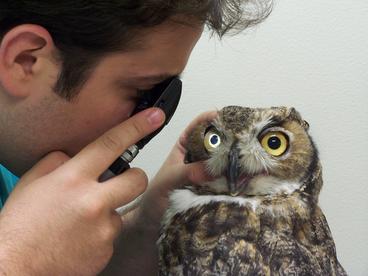The issue
West Nile virus (WNV) is a virus that causes encephalitis, an inflammation within the brain, in many animal species including humans. While WNV has existed in the Eastern hemisphere for over 1,000 years, the virus first appeared in North America in 1999 and has since become endemic. The virus is spread by mosquito bites, and birds are the primary host. Some bird species, such as the American robin and the house sparrow, are reservoir hosts of the virus, meaning they do not become ill from the virus but can serve as a source of viral spread. Other species of birds such as crows, blue jays, and raptors can develop clinical disease. Due to their developing immune systems, young birds are more susceptible than adults. Some raptors are able to recover either on their own, or with the treatment provided in rehabilitation. Others suffer permanent organ damage and do not survive.
What TRC is doing
The Raptor Center provides medical care for wild birds that develop clinical disease due to WNV infection. While there is no specific treatment, supportive care can improve the bird’s welfare and chances for recovery. Information on the seasonal occurrence of WNV in raptors and other animals also helps to inform public health policies.
Currently there is no specific avian vaccine. Therefore, we review the information available in the scientific literature and provide recommendations for the use of commercial equine vaccines in raptors in zoos and other educational settings or used for falconry. We also provide recommendations on how to manage raptors in captivity and rehabilitation settings to decrease the risk of WNV infection.

